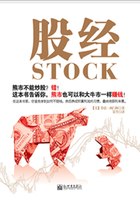In accentuating the struggle for life Darwin stands as a characteristically English thinker: he continues a train of ideas which Hobbes and Malthus had already begun. Moreover in his critical views as to the conception of species he had English forerunners; in the middle ages Occam and Duns Scotus, in the eighteenth century Berkeley and Hume. In his moral philosophy, as we shall see later, he is an adherent of the school which is represented by Hutcheson, Hume and Adam Smith. Because he is no philosopher in the stricter sense of the term, it is of great interest to see that his attitude of mind is that of the great thinkers of his nation.
In considering Darwin's influence on philosophy we will begin with an examination of the attitude of philosophy to the conception of evolution at the time when "The Origin of Species" appeared. We will then examine the effects which the theory of evolution, and especially the idea of the struggle for life, has had, and naturally must have, on the discussion of philosophical problems.
II.
When "The Origin of Species" appeared fifty years ago Romantic speculation, Schelling's and Hegel's philosophy, still reigned on the continent, while in England Positivism, the philosophy of Comte and Stuart Mill, represented the most important trend of thought. German speculation had much to say on evolution, it even pretended to be a philosophy of evolution. But then the word "evolution" was to be taken in an ideal, not in a real, sense. To speculative thought the forms and types of nature formed a system of ideas, within which any form could lead us by continuous transitions to any other.
It was a classificatory system which was regarded as a divine world of thought or images, within which metamorphoses could go on--a condition comparable with that in the mind of the poet when one image follows another with imperceptible changes. Goethe's ideas of evolution, as expressed in his "Metamorphosen der Pflanzen und der Thiere", belong to this category;it is, therefore, incorrect to call him a forerunner of Darwin. Schelling and Hegel held the same idea; Hegel expressly rejected the conception of a real evolution in time as coarse and materialistic. "Nature," he says, "is to be considered as a SYSTEM OF STAGES, the one necessarily arising from the other, and being the nearest truth of that from which it proceeds; but not in such a way that the one is NATURALLY generated by the other; on the contrary (their connection lies) in the inner idea which is the ground of nature. The METAMORPHOSIS can be ascribed only to the notion as such, because it alone is evolution...It has been a clumsy idea in the older as well as in the newer philosophy of nature, to regard the transformation and the transition from one natural form and sphere to a higher as an outward and actual production." ("Encyclopaedie der philosophischen Wissenschaften" (4th edition), Berlin, 1845, paragraph 249.)The only one of the philosophers of Romanticism who believed in a real, historical evolution, a real production of new species, was Oken.
("Lehrbuch der Naturphilosophie", Jena, 1809.) Danish philosophers, such as Treschow (1812) and Sibbern (1846), have also broached the idea of an historical evolution of all living beings from the lowest to the highest.
Schopenhauer's philosophy has a more realistic character than that of Schelling's and Hegel's, his diametrical opposites, though he also belongs to the romantic school of thought. His philosophical and psychological views were greatly influenced by French naturalists and philosophers, especially by Cabanis and Lamarck. He praises the "ever memorable Lamarck," because he laid so much stress on the "will to live." But he repudiates as a "wonderful error" the idea that the organs of animals should have reached their present perfection through a development in time, during the course of innumerable generations. It was, he said, a consequence of the low standard of contemporary French philosophy, that Lamarck came to the idea of the construction of living beings in time through succession! ("Ueber den Willen in der Natur" (2nd edition), Frankfurt a. M., 1854, pages 41-43.)The positivistic stream of thought was not more in favour of a real evolution than was the Romantic school. Its aim was to adhere to positive facts: it looked with suspicion on far-reaching speculation. Comte laid great stress on the discontinuity found between the different kingdoms of nature, as well as within each single kingdom. As he regarded as unscientific every attempt to reduce the number of physical forces, so he rejected entirely the hypothesis of Lamarck concerning the evolution of species; the idea of species would in his eyes absolutely lose its importance if a transition from species to species under the influence of conditions of life were admitted. His disciples (Littre, Robin) continued to direct against Darwin the polemics which their master had employed against Lamarck. Stuart Mill, who, in the theory of knowledge, represented the empirical or positivistic movement in philosophy--like his English forerunners from Locke to Hume--founded his theory of knowledge and morals on the experience of the single individual. He sympathised with the theory of the original likeness of all individuals and derived their differences, on which he practically and theoretically laid much stress, from the influence both of experience and education, and, generally, of physical and social causes. He admitted an individual evolution, and, in the human species, an evolution based on social progress; but no physiological evolution of species. He was afraid that the hypothesis of heredity would carry us back to the old theory of "innate" ideas.















